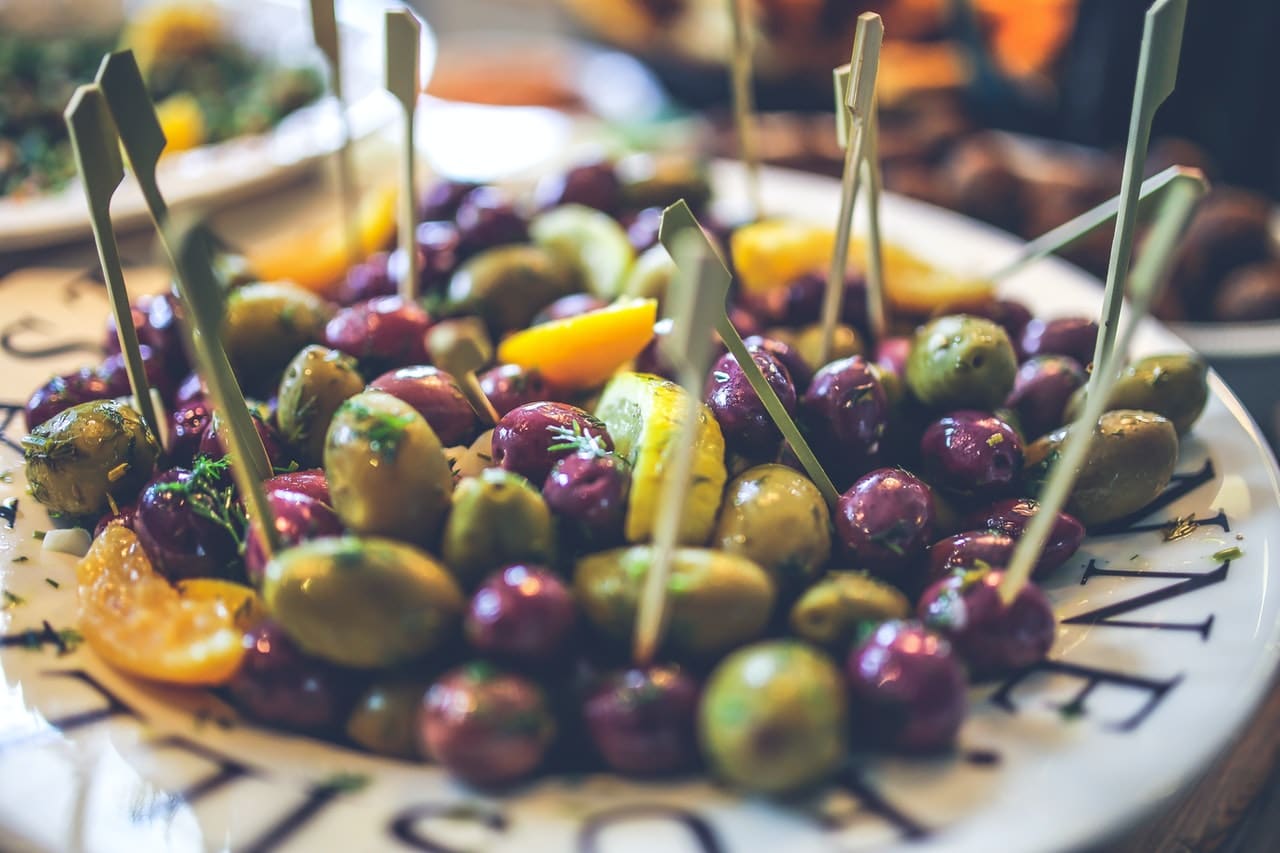Are olives fruit? This has been the perineal question for many people because olives have a single seed, and they don’t taste quite like your common vegetable or your common fruit. So is an olive a fruit? Let’s find out in today’s outstanding Olive Blog. How are olives fruit?
Are Black Olives a Fruit Or A Vegetable?
Is olive a fruit? Are olives fruits? All olives, including black olives and green olives, are botanically fruits. Olives are fruit insofar as they have a pulpy external layer, a stone, or pit in the center (the seed). Olives come from a tree (Olea europaea) that is common in the Mediterranean olive. Olives are an important food crop in this region, and it is a source of the highly prized olive oil, which is used worldwide. The olive tree is part of the botanical family that includes jasmine and lilac. The olive tree usually is squat and barely exceeds 15 meters in height, even upon full maturity. Olives are categorized as drupe fruits that can measure one to 2.5 cm. Mature olives are harvested in the green stage up to the purple stage. Black olives that we see in cans and jars are artificially colored to improve their appearance. A stunning 90% of all olives in the Mediterranean basin are processed to become olive oil (different types). These olives are improved with a chemical called ferrous gluconate. In the United States, the stony seed in olives is referred to as the pit. In the United Kingdom, however, the term is stone.
How Many Olives Can I Eat a Day?
Weight loss professionals generally tout olives as an adequate aid for losing weight. However, processed olives are high in salt, and they have high-fat content, too. Calories from olives can quickly increase if you don’t monitor how much you eat per day. The ideal serving portion per day is 16 to 24 olives, on the average.
Olives are generally enjoyed as part of a salad or tapenade. A single mature olive can weigh three to five grams each. Immature olives and ripe olives can be consumed, but for the most part, the olives that you will see in the market are the ones that have been ripened to international standards for table consumption. To understand how many olives you should be consuming per day, it’s best to understand olives’ nutritional data per 100 grams. One hundred grams is about 20 olives, give or take.
Calorie-wise, you are going to get about 59 calories for every ten olives that you consume. This amounts to about 115 calories for every 100 grams of mature olives. You will get 80% water, 0.8 grams of protein, 6.3 grams of carbohydrates, and no added sugar for this serving. You will also get around 3.2 grams of dietary fiber and 10.7 grams of fat. 1.42 grams of the total fat in 100 grams of fresh olives is saturated fat, while there are 7.89 grams of monounsaturated fat and 0.91 grams of polyunsaturated fat.
Are Green or Black Olives Healthier?
Nutritionally speaking, both green olives and black olives are nutritionally superior, and they are equal in terms of nutritional benefits. So whether you have black ones or green ones, you’re getting the same health advantages, so don’t worry about it at all.
Health Benefits of Olives
If you love eating olives and would like to know how they benefit the body, here are some of the ways that olives can help you increase your life expectancy and overall wellness.
- Olives contain oleic acid, a potent fatty acid that can help reduce high blood cholesterol. High cholesterol is linked with hypertension and other cardiovascular anomalies, so people spend a lot of money trying to get their LDL levels familiar. Many studies already show that the regular consumption of olives and olive oil can help improve a person’s cardiovascular status. Additional studies have also shown that consuming olives or just live oil can reduce a person’s risk of developing cardiovascular diseases by 28%. This is in comparison with a control diet that doesn’t have any olives in it.
- The antioxidant compounds in olives have an overall protective effect on the body. The research revealed that eating olives can reduce the overall mortality rate of a person. This probably due to the combination of antioxidants and good fats that benefit the body in many ways. According to the American Heart Foundation, the regular consumption of good fats like monounsaturated fats can benefit organs. Snacking on olives more frequently can also help reduce your carbohydrate and sugar intake, and this greatly helps in the reduction of too much sugar in your body. Too much sugar is linked with so many health conditions, including heart ailments and diabetes. By shifting snack items that have a low glycemic load, you can help your body recover from the effects of having too much sugar.
- Olives and olive oil are naturally rich in polyphenols. Polyphenols are antioxidants that work several ways to keep the body healthy. However, their most significant contribution in reducing the incidence of tissue inflammation, a precursor to other kinds of diseases like fatty liver. With enough olives in your diet, your organs will be less prone to inflammation and disease.
- Olives are so common in the Mediterranean that scientists have noticed a much lower rate of chronic and degenerative diseases there, including cancer. Closer examination of olives and its relation to cancer prevention shows that olives can help prevent different kinds of cancer. Why this happens is because of its natural antioxidant content. It can help reduce the risk of developing cancer in the colon, breast, and stomach.

